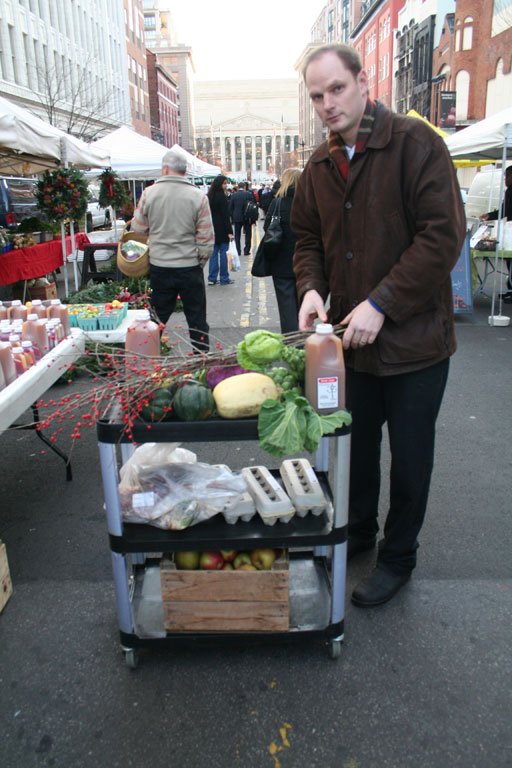
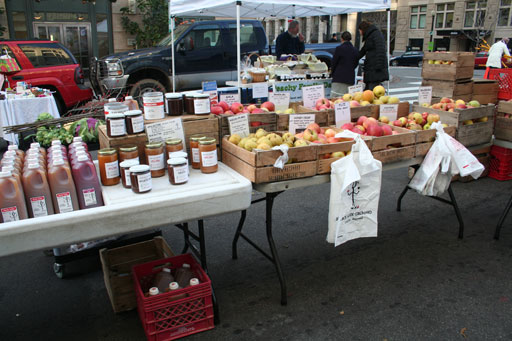
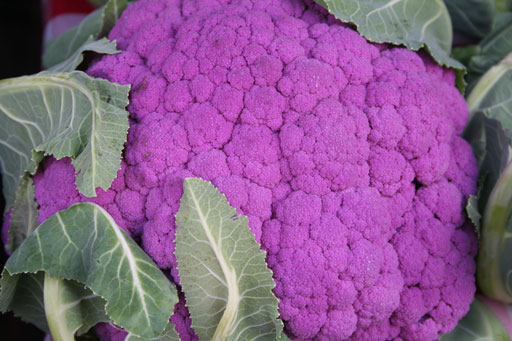
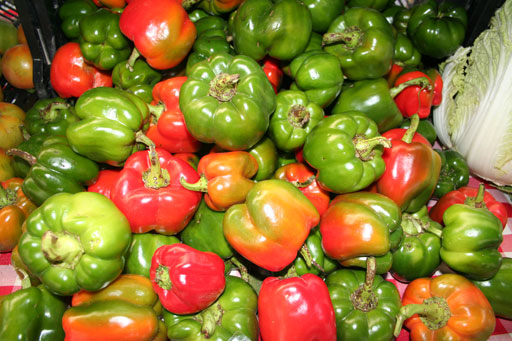
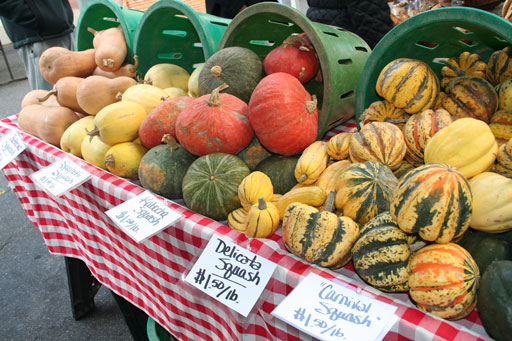
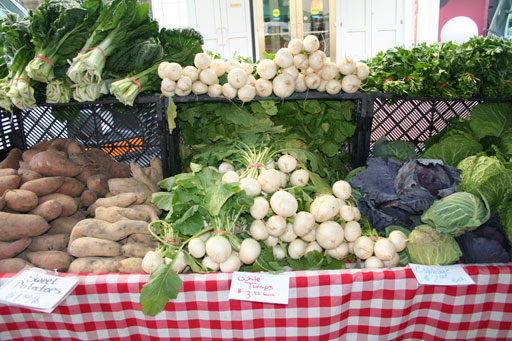
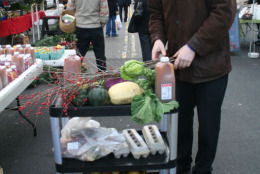
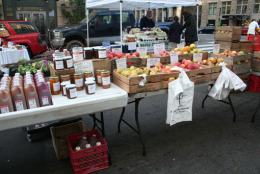
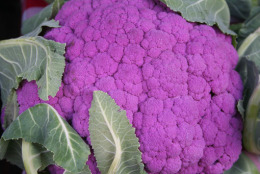
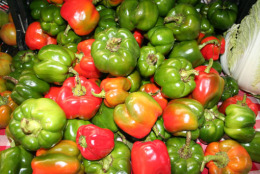
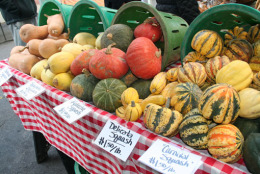
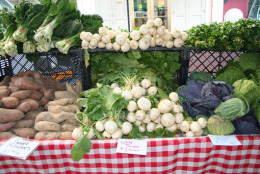
Alicia Lozano, wtop.com
WASHINGTON – As a cold wind whipped through downtown D.C., Cedar Executive Chef Aaron McCloud carefully picked his way through locally grown apples, cauliflower and squash. With just a few weeks left before the Penn Quarter FRESHFARM Farmers Market closes for the season Dec. 20, he appeared to savor each find like it was the most important ingredient in the evening’s menu.
And for a chef like McCloud, that can sometimes be the case. The seasons determine the menu at Cedar, something more and more restaurants are incorporating into their dining experience.
“The whole idea is you walk around and see what farmers have that day,” he says. “The season dictates what is going to be good regardless, so we talk to the farmers, see what they have that day, and our menu follows.”
This concept isn’t necessarily new, but it is gaining traction among consumers who want to know that their food is fresh and locally sourced.
Chef Ris Lacoste of RIS restaurant on L Street has been working closely with local farmers for more than two decades. Her go-to suppliers for Brussels sprouts, spinach and cauliflower are Jim and Alice Breger of Anchor Nursery. For fresh fruit, she turns to Mark Toigo of Toigo Orchards. And for kale, onions and potatoes, she prefers Spring Valley Farm and Orchards.
“When my guests say ‘Wow, that was delicious!,’ I give my farmers most of the credit,” she says.
Twenty-five years ago when Lacoste started her culinary career in D.C., just a handful of farmers were willing to drive produce straight to restaurants, she says. But since farmers markets took off in the District 10 years ago, she has noticed a surge of local food making its way into private dining rooms across the region. And this has impacted what people expect from their restaurants.
“They are tasting and making these fresh things [at home], so when they come to restaurants, they want that as well,” she says.
McCloud also credits growing a cultural obsession with all things food-related. Cooking shows and celebrity chefs are just part of a larger trend, he says.
“The American diner is a lot more in-tuned with food … hence you want to know where your stuff is coming from,” he says. “Even burger joints are telling you where their beef is from.”
Back at the Penn Quarter farmers market, McCloud is fussing over horseradish with Julie Stinar, owner of Evensong Farm in Sharpsburg, Md. Even though she specializes in poultry, pork and beef, Stinar has set aside some of the fragrant root just for McCloud.
“Do you want your sinuses to clear?” Stinar asks.
“Yeah, right. This stuff is pretty good?” McCloud responds.
Stinar explains that her horseradish has gone through several frosts and picked up a sweet flavor along the way. McCloud is impressed, and even negotiates a poultry delivery for the following week.
Stinar and McCloud have been working together since the chef joined Cedar more than a year ago, and quickly established a friendly rapport based on their mutual respect of food. Stinar often brings in special orders or sets products aside for McCloud, and McCloud chooses Evensong poultry because of its quality.
“This is some of the best chickens you can buy,” he says.
“The farmers bust their [butts] every day doing what they do, and they want to know they’re going to give their product to someone who respects it.”
For Stinar, it’s all about trust. Evensong is a small family farm and can’t compete with large distributors, she says. Instead, Stinar has to pick and choose her clients and does so based on their relationships to food. After all, that’s what sustainable farming is all about, she says.
“I look for chefs who really understand what is happening, who like to do exactly what Aaron does, and there aren’t many chefs like that,” she says.
This barometer keeps Stinar’s clientele to a manageable minimum, but also allows her to offer top-quality products. And that kind of personal service is what the farm-to-table relationship is all about, Lacoste says.
“I love it that I’m serving food to my guests and I know who grew it,” she says. “My relationship with the farmers somehow passes through in my cooking … and it’s passed on to the customers.”
Follow @WTOP on Twitter.
(Copyright 2012 by WTOP. All Rights Reserved.)







